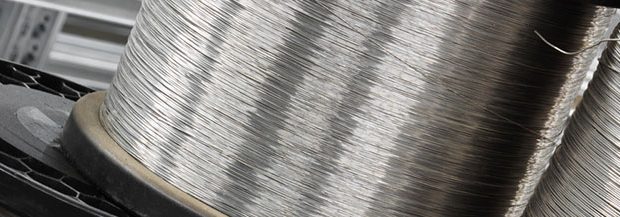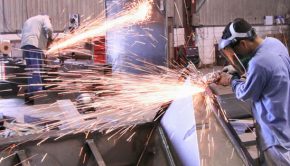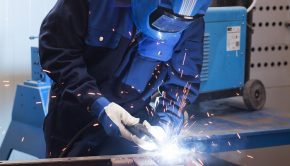Precision Wires and Oil Tempered Wires
Both heavy duty and medium range machinery needs precision wires for optimum functioning. These wires are used in rotating and static electrical or electronic equipment in a range of fields. Depending on the application for which you’ll use the wires, you can choose varieties made with different metals and alloys including copper and copper alloys, stainless steel, nickel and nickel alloys, carbon steel, and special materials. These high-grade elements include alloys of zinc, titanium, and aluminium.
Areas Where Precision Wires are Used
Precision wires are needed in various industries such as
- Aeronautical
- Medical
- Heat treatment including resistance wires and tapes, and stranded resistance wire
- Petrochemical, oil, and gas
- Industrial including automotive
Understanding the Different Kinds of Precision Wires
Precision wires are classified into 13 broad categories depending on the element that goes into their manufacture:
1. Carbon Steel Spring Wires
Carbon steel spring wires are available in specifications such as SL, SM, DM, SH, and DH. Owing to their high tensile strength, these wires are specifically used to make springs. In addition, they are economical and long-lasting.
2. Controlled Expansion Alloy Wire
Made of iron-nickel alloys, controlled expansion wires are used in sealing hermetic and glass to metal applications. The alloy has the special capability of displaying low expansion at room temperature.
3. Copper Electroplated Wires
Also called wrap wires, electroplated wires are used in high performance connectors and cables. By electroplating wires, manufacturers provide them with a surface that is solderable, conductive, and corrosion resistant.
4. Copper Nickel Resistance Wire and Shunt Alloy
Copper nickel resistance wires are specially manufactured for low temperature heating applications such as heat tracers, under floor heating, and car seat heating. These materials can be easily soldered and provide good resistance to chemical corrosion and oxidation. Shunt alloys are ideal for creating resistors like, for instance, ammeter shunts.
5. Dumet Wire
Dumet wires are made of a nickel-iron core with a sheathing of oxygen free high purity copper. These wires are available in a range of finishes such as nickel plated, bare, borated, or oxidised.
6. Nickel Alloy Wires
Nickel alloy wires are used for various purposes thanks to their special thermal properties and capability of resisting corrosion. Users can order these wires in grades ranging from Nickel 200 to Nickel 625 and also, customized grades.
7. Nickel-Iron Soft Magnetic Alloy Wires
Nickel-iron soft magnetic alloy wires are used as the magnetic core element in electronic and electrical equipment. Available in specifications of flat or round, these wires can be used for magnetic shielding applications.
8. Profiled Wire
Customers can order profiled wires in a wide range of cross sections. These wires can be manufactured with the minimum of wastage and that makes them economical for the user. Profiled wires are typically used in filtration, sealing procedures, and medical devices.
9. Stainless Steel Fine Wires
Stainless steel wires are mainly used in industrial knitting and braided medical devices. Also available in small diameters, these wires are manufactured with a careful focus on the precision winding, tensile strength, and dimensional tolerances.
10. Thermal Resistance Wire
Thermal resistance wires are manufactured out of nickel chromium alloys and are used in various resistance applications. These include thermocouples and heating elements.
11. Thermocouple Wires
Thermocouple wires can be ordered to specifications of flat ribbons or round wires. These wires are useful for connecting the cold junction compensation (cjc) that acts as the receiving and measuring point of the signal and the point of sensor.
12. Welding Wires
Welding wires are available in diameters of 1.60mm to 5.00mm depending on the requirement. Users can also opt for the matte or bright finish and can be purchased in the spool form or cut in specific lengths.
13. Oil Tempered Spring Steel Wires
Oil tempered spring steel wires are useful in automotive applications such as clutch springs, valve springs, and various other uses.
Oil Tempered Spring Steel Wires
Oil tempered spring steel wires are heat-treated cold drawn wires. The oil tempering treatment makes the wires stronger and harder without raising their brittleness. The process allows the material to remain flexible and take high amounts of pressure. For this reason, oil tempered wires are ideal for manufacturing coil springs such as extension springs and compression springs.
Types of Oil Tempered Wires
Customers can choose from a wide range of oil tempered wires depending on the application for which they’re needed.
- Clutch Springs
- Garage Door Springs
- Oil Tempering Lines Coil
- Steel Brush Wire
- Suspension Springs
- Valve Springs
- Upholstery Springs
Understanding the Manufacturing Process of Oil Tempered Wires
Manufacturers use the process of heating the materials to austenitizing temperatures using a direct fired furnace or muffle tube furnace. During austenitizing, the metals are heated to temperatures above their critical limits so that certain transformations are stimulated in them. However, care is taken to prevent decarburization.
Typically, these temperatures range from 400 °C (752 °F) to 800 °C (1472 °F) for different grades of alloys, carbon, and tool steels. By completing the austenitizing process, manufacturers can achieve the desired microstructure, hardness, and strength by using further heating processes. Depending on requirement, steel and ferrous alloys are transformed into the partial austenitizing state or complete austenitizing state.
Next, the materials are quickly dipped in water or oil based quenching agent that works to harden it. In the third stage of the process, the metals are heated again to an intermediate temperature to get tempered martensite.
While manufacturers typically use lead in the tempering process, they may also choose a fluid bed that works as a more environmentally friendly option. The resultant wire created produces valve spring quality wire that is highly ductile, tough, and highly resistant to deformation, heat, and fatigue making it long-lasting and durable.
Applications of Oil Tempered Wires
The exceptional strength of oil tempered wire makes them ideal for being primarily used to create extension springs and coil compression springs.
Extension Springs
Manufacturers typically choose oil tempered wires to create extension springs because the oil tempering raises their flexibility. These springs are used as screen door springs and springs found on garage doors. They are connected to the devices using attachable ends such as hooks or loops to hold them in place.
Because of the various properties of oil tempered wires, they are ideal for springs. Read ahead to understand some of them:
- Extension springs can store energy and are resistance to the force of pulling.
- When sufficient force is applied to pull them, these springs expand in length.
- Oil tempered wires are strong without any brittleness.
- These wires can maintain their integrity without snapping even under high forces.
Coil Compression Springs
Oil tempered wires are also used to build coil compression springs that are the most popularly used springs. Compression springs can work to adsorb compression energy that is applied against the spring axis. Several industries have been using these springs for decades now. These coil compression springs are recommended because of their exceptional strength brought about by the tempering process. Compression springs have the property of being able to shrink in length in response to the force applied to them. In the automotive industry, compression springs are used as engine components or to make seats. In the medical field, these springs are used when building large complex equipment.

















